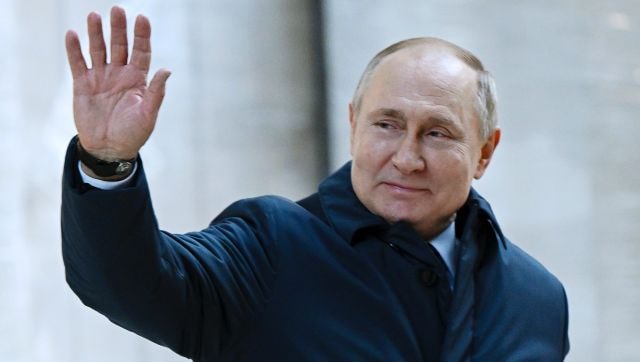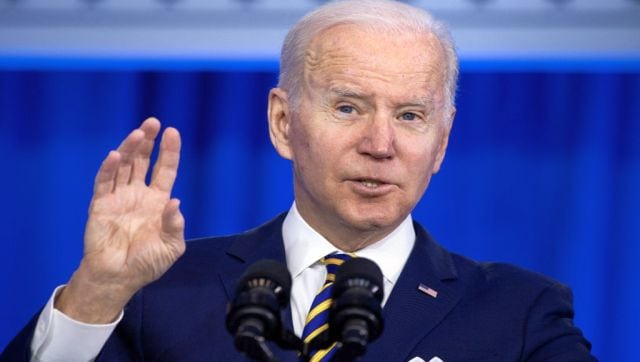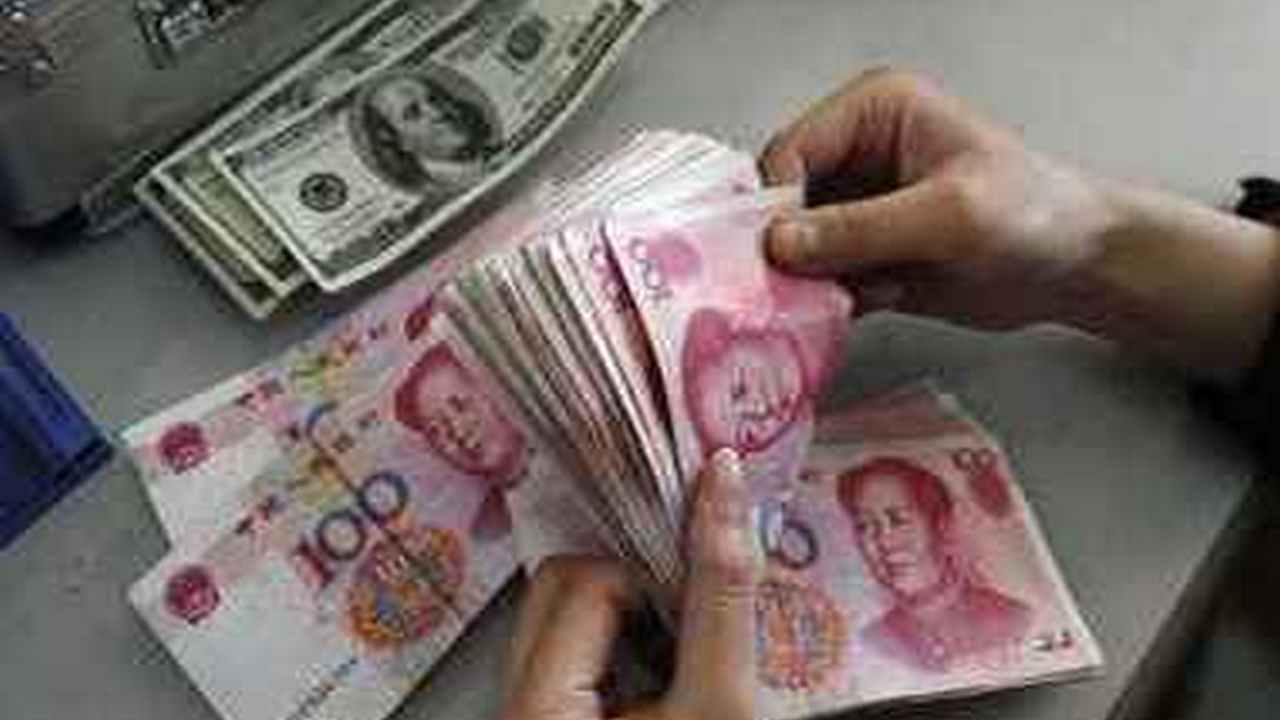In December 1989, the Berlin Wall was pulled down, bringing the Cold War between the United States and the Soviet Union to an end. A buoyant Francis Fukuyama announced that the world was witnessing not just the end of the Cold War, but the end of history. A few days after the collapse of the Berlin Wall, an angry local crowd stormed the Dresden headquarters of Stasi, the East German secret police, and headed towards the KGB headquarters on the same street. BBC, in one of its pieces a few years ago, mentioned this incident: When a KGB officer stepped out and threatened the crowd that his colleagues were armed and ready to use fire, if needed. The bluff worked against the angry crowd. He then called up the local Red Army unit for protection. The local Russian army unit officer responded on the phone that he needed orders from Moscow. The orders never came. The KGB officer who had arrived on his first posting to Dresden in the mid-1980s, left Germany in sheer ignominy. That day may have well decided the political journey of the KGB officer — Vladimir Putin. And a post-history that Fukuyama may have slyly avoided. [caption id=“attachment_10415181” align=“alignnone” width=“640”]  File image of Russian president Vladimir Putin. AP[/caption] For long, President Vladimir Putin unswervingly pursued his mission of restoring a Soviet pride that he felt was dismantled along with the Berlin Wall in 1989. Putin’s understanding of history is rooted in a post-Cold War arrangement where Russia’s status had steadily dwindled against a powerful, swelling NATO. The US continued to expand the NATO footprint, bringing it close to Russia’s door that served to exacerbate Putin’s insecurity. On his part, Putin used every means at his disposal, whether ruling his country as an autocrat, or pressurising weaker countries in the region every few years. Despite his apparently volatile moves, Putin displayed an intuitive sense of timing. Each time, he caught the US and NATO on the wrong foot. In 2008, Putin made his first move when he invaded Georgia. In 2014, Putin annexed Crimea and the West failed to prevent either. In the years that followed, the axis of world power changed. Unlike 2008 and 2014, China now challenged US hegemony and emerged as a serious counter-puncher in a bipolar world. Typically, authoritarian leaders are known to find validation for their insecurities in historical grief which helps them justify their adventurism. NATO’s expanding footprint without a necessary security umbrella for a vulnerable state such as Ukraine provided Putin with the perfect alibi to pursue his revanchist ambition. Ukraine was his comeuppance against America. Why did Putin attack Ukraine now? There are several reasons. One, unlike in 2008 and 2014, Russia wasn’t going to be alone in challenging the Americans this time. The tag team partnership of Russia and a powerful China emboldened Putin. Two, and more importantly, Joe Biden’s presidency had begun on a feckless note in the wake of the Afghanistan debacle where the Afghan army’s surrender competed with images of American soldiers scampering to withdraw. The message was clear: America was not interested in fighting someone else’s war. Biden, when challenged during the Russian buildup, declared that America was not going to put boots on ground. Putin knew the US wasn’t going to interfere. After having dismantled Ukraine’s powerful nuclear arsenal and reduced its army with the promise of a security guarantee in the 1990s, the US lost credibility as it watched feebly from the sidelines. [caption id=“attachment_10365531” align=“alignnone” width=“640”]  US president Joe Biden AFP[/caption] War’s progress and impact on Russia In the early days of this war, Putin appeared to have a limited plan — that of destroying key installations, applying military pressure, annexing eastern provinces and replacing the Kyiv regime. There is also a debate over the slow advancement of the Russian army. It was initially envisaged that Ukraine would fall quickly; however, the Ukrainian forces have held on gamely. One of the arguments about the slow advance is that the Russians have desisted from using air force to limit civilian casualties. The Russians are also keen to secure the strategic Black Sea coast. The other possible argument is that as NATO’s lack of intent to interfere began to unravel, Putin kept pushing the levels and drove a cleaver through the indecisive underbelly of the NATO leadership. Putin’s soaring ambitions thus stayed ahead of his military plans, which made his mobilisation appear slow and cumbersome.
***
Also Read **How Russia-Ukraine conflict will have a major fallout on Indo-Pacific** **Why is India’s approach to the Ukraine crisis under spotlight?** **How Xi’s friend Joe hastens the beginning of end of Pax Americana with his Putin obsession** **India’s Russia policy has been spot on so far, but going ahead it needs to break free of the dependence for truer strategic autonomy** **Big lesson for India from Ukraine war: There’s nothing bigger for a country than its national interests** **As Putin plays Russian roulette in Ukraine, Indian diplomacy treads a fine line** **Putin’s Ukraine war: Early military lessons for India from the Russian invasion** **How Russia-Ukraine conflict has complicated the already complex geopolitics** **Ghosespot | How Opposition slamming Modi government’s handling of crisis doesn’t hold water** **Russia’s war in Ukraine: How India’s UN Security Council vote was pragmatic** **Russia-Ukraine crisis: Here's what will get more expensive in India if two countries go to war** **The meta-narrative about India’s non-involvement in the Ukraine imbroglio** **India’s abstinence from UN Security Council vote on Ukraine was the right decision**
***
War, a violent intended outcome of differences between nations, unleashes unintended outcomes by the end. It is unlikely that Putin would have planned for a long war, given that he expected a raft of sanctions to emerge from the US and NATO, which had revealed their military cards early on in the war. The war has gone on for more than ten days now: The longer the war lasts, the weaker Putin would emerge from it. Kyiv is likely to fall one day, but at what cost? Russia stands politically isolated, economically weakened and militarily diminished. This war might be the last that Russia fights as a middling-to-large power. Impact of the war in Indo-Pacific In the last one month, the global focus has shifted from the Indo-Pacific to Europe. NATO, which has traditionally been more sensitive about the latter, has proved effete in home territory. China, which has been observing the progress of the war, knows that the Indo-Pacific is far away from NATO powers, despite the presence of American bases, US allies and the Indo-Pacific command. Eventually, when the focus shifts back to the Indo-Pacific, do we see an altered world order? Let’s begin with the impact of economic sanctions. In the absence of a demonstrable lack of pre-emptive or preventive military means to stop a nuclear power, the US moved quickly to impose heavy economic sanctions on Russia, freezing its central bank assets and disabling access of Russian banks to payment gateways such as SWIFT or Chips. This move is intended to dent Moscow’s banking systems and incapacitate the access of its banks to overseas business. The geopolitical impact of financial asphyxiation is expected to drive Russia more into the Chinese economic orbit, where it can survive via alternative transfer systems. China plans an alternative payment gateway with its Cross Border Interbank Payments Systems and analyst Andy Mukherjee feels that use of a digital yuan will enable China to bypass the SWIFT system. Economist John Hopkins believes that the move ‘risks eroding the dollar-dominated global financial system’. Will the war be an inflexion point for the emergence of alternative systems? [caption id=“attachment_7116191” align=“alignnone” width=“1280”]  The Chinese yuan[/caption] A key difference between Russia and China is that while Putin engaged in full-scale military conquests of Georgia and Crimea, China used coercive posturing and military threats as a means of intimidating weaker countries and sneakily salami slicing territories short of outright invasion. China hasn’t fought a successful military campaign since 1962 (the last disastrous one was in Vietnam in 1979), but engages in calibrated braggadocio that guides their modus operandi. History after Vietnam has shown that China is unlikely to launch an invasion it does not believe it can win. On the other hand, a battle hardened Russian army has carried out many excursions in Europe and Asia in the last four decades. In recent times, though, China’s approach of coercion to obtain gains has been underwritten by its financial muscle, which Russia lacked. In such a changed situation, will China consider altering history through a short, speedy, successful attack on Taiwan as a favourable option? Impact on nuclear deterrence After the breakup of the Soviet Union in 1991, Ukraine briefly possessed the third-largest stockpile of nuclear weapons in the world. The US and Russia convinced Ukraine to give up its nuclear assets and reduce the size of its armed forces. In one fell stroke this winter, the idea and practice of nuclear disarmament was undone forever. A conventional military attack by a nuclear Russia couldn’t be prevented by a nuclear-disarmed Ukraine and the subsequent Russian nuclear threats to coerce a non-nuclear country to comply is now a case study that sounds the death knell of global nuclear disarmament. This has been picked up by Japan that has already spoken about the option of nuclear sharing. Under nuclear sharing arrangements, used amongst NATO countries, nuclear weapons are prepositioned to be used as deterrents against hostile powers. Can China bend its most serious adversaries to its will? As the world stayed glued to the destruction of Ukraine’s air defence capability, six fighter jets and two anti-submarine aircrafts took off from China towards the southwest corner of Taiwan threatening its air-defence zone. China was staging a potential execution of plans and will increase the intensity of pressure on its adversaries in the immediate future. Like Ukraine, Taiwan’s nuclear capability was dismantled at the behest of the US. China has also attempted to scuttle India’s rise in the region. After the dust settles in Europe, the wind will blow towards the Indo-Pacific: That’s where the coalition of the like-minded need to come together to protect the free world. The threat in Asia will be the final nail in ensuring the demise of America’s influence in the world. The world order would truly change if that were to happen. For once, the free world needs to set the narrative and not react to a Chinese one. This article is Part 1 of the three-part series. The writer, author of ‘Watershed 1967: India’s Forgotten Victory over China’, writes on military history and international affairs. Views expressed are personal. Read all the Latest News , Trending News , Cricket News , Bollywood News , India News and Entertainment News here. Follow us on Facebook, Twitter and Instagram.


)

)
)
)
)
)
)
)
)



